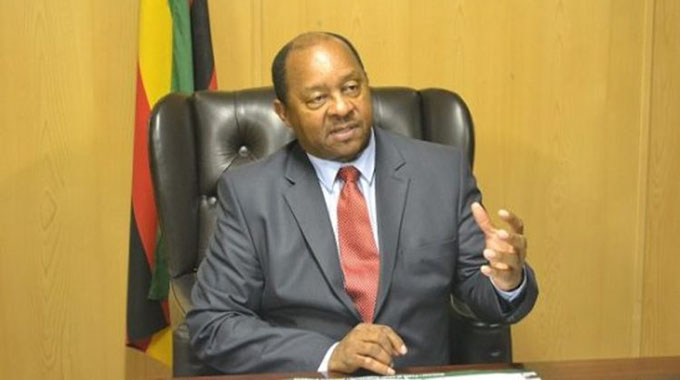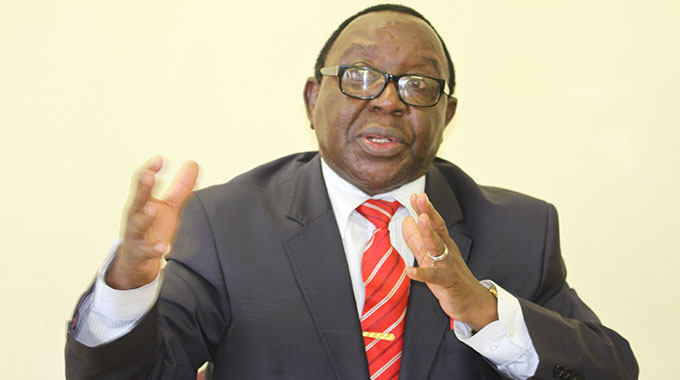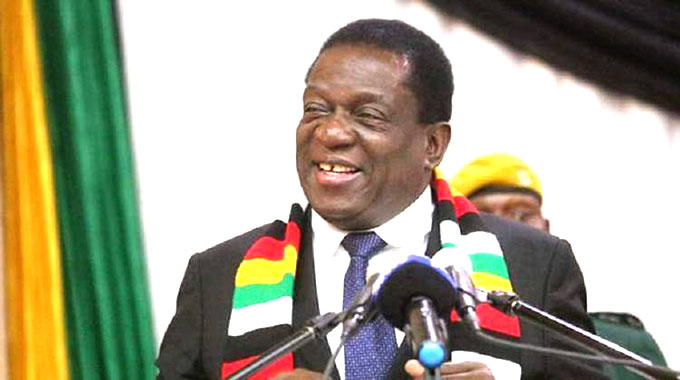Govt rolls out hospital rehab programme

Paidamoyo Chipunza Senior Health Reporter
Government has embarked on a massive rehabilitation programme for public health institutions in a development expected to result in a marked improvement in standards and the availability of critical health services, Health and Child Care Minister Dr Obadiah Moyo has said.
He said the programme, which is going to be implemented in partnership with private players provided for under the 2015 Joint Ventures Act, will initially target central hospitals, after which similar joint ventures will cascade down to other health institutions throughout the country.
Parirenyatwa Group of Hospitals, Mpilo Central Hospital and United Bulawayo Hospitals have since invited bidders interested in partnering them in refurbishing and re-equipping various sections of the hospitals.
Successful firms or groups will also operate a super-specialty hospital wing within each institution.
“We want to make sure that the healthcare facilities are of very high level, providing first-class service. We want to make sure that our customers access affordable services, which is also within easy reach so we want to make sure that all the facilities are all rehabilitated.
“Our facilities had gone for a long time without going major rehabilitation and at the same time we also need to replenish all the institutions with medicine, surgical sundries so that it make sense,” said Dr Moyo.
“For us to be able to tackle all these problems, as a Government and on our own, we cannot be able to fulfil it, that is why you here the Zimbabwe is open for business mantra and this is not just in other industries, it includes the healthcare industry as well.”
Dr Moyo said the super-specialty hospitals are meant to mitigate the burden of patients travelling outside the country seeking these services. He said in that regard, Government was seeking to partner with investors with financial capability as well as that expertise for specialty services to impart to local professionals.
“So it is not just a matter of partners for the sake of partners. It’s partners who have the capability to train our people, who can be able to set up all the relevant high quality set up in our institutions,” said Dr Moyo.
Dr Moyo said this latest development is an improvement of the Chitungwiza Central Hospital model in which institutions provide services for those who can afford and those who cannot afford but using the same facilities.
“Chitungwiza Central Hospital has already been running that type of joint venture partnerships (JVP) and that is what has made the hospital survive but obviously, we also realised that we also have to improve the working arrangement with our partners,” said Dr Moyo.
He said already some investors have shown interest in partnering Government in this initiative with some projects already at an advanced stage of implementation.
“And already we have had some responses for Parirenyatwa Hospital, there are some foreign investors who have shown some interest. We are just waiting to finalise that.
“UBH has already entered into some other arrangements in orthopaedic services and they are at a very advanced stage,” he said.
Asked about the cost implication of the JVCs to patients, Dr Moyo said this initiative will not affect gazetted cost of healthcare.
“The socially disadvantaged will access the facilities as usual and then if someone feels that they have got some money, their medical aid will be able to cover for their costs, they will have an option of going into a unit, which is providing speciality services as a private unit and these private units will not interfere with the day to day running of the usual hospitals.
“So we are identifying a small section within each hospital which is given to the private investor and they operate their facilities there and they will be able to utilise the same common services like radiology, pharmacy, theatres so there is that sense of sharing on the common services between those who go to the private sector and those who go to the public sector,” he explained.
Dr Moyo said eventually, Government want to see all its health institutions working at full capacity unlike the current scenario where some institutions have closed some units because of obsolete equipment.
“Take Parirenyatwa hospital for instance, they have 21 theatres, most of which are not working. So we expect the partner to refurbish those facilities, put in robotic equipment for the theatre so that we bring our hospital way up to standard.
“So it’s a marathon task but it is necessary, because we are very behind the other countries and we have to catch up,” said Dr Moyo.








Comments